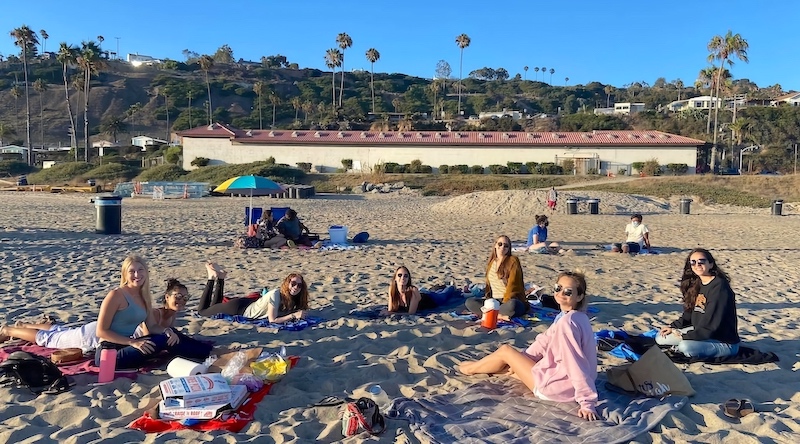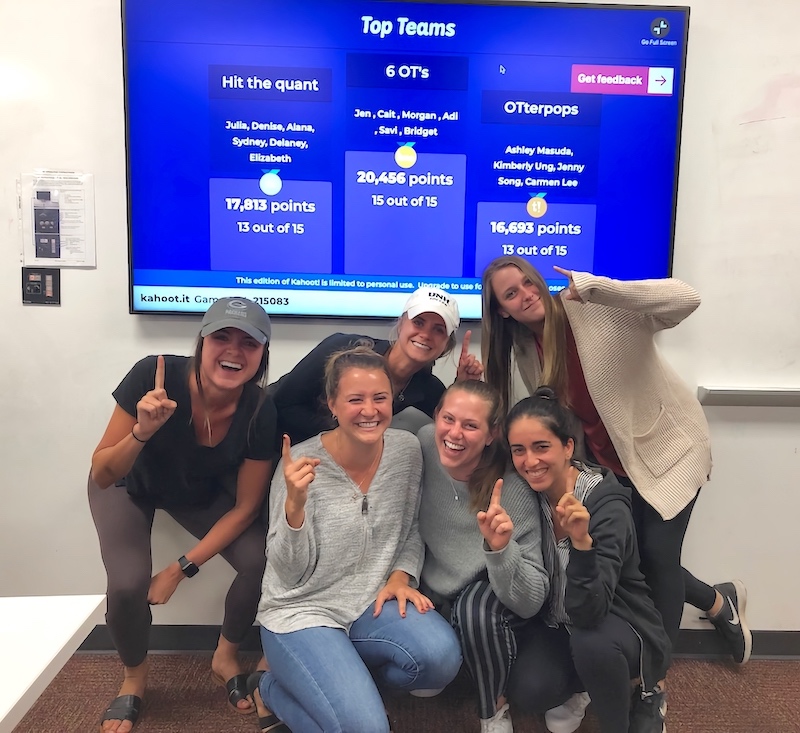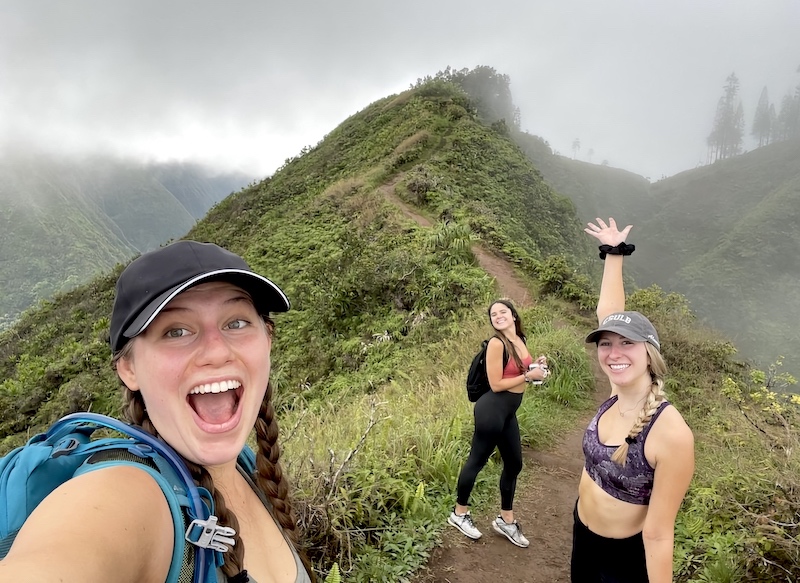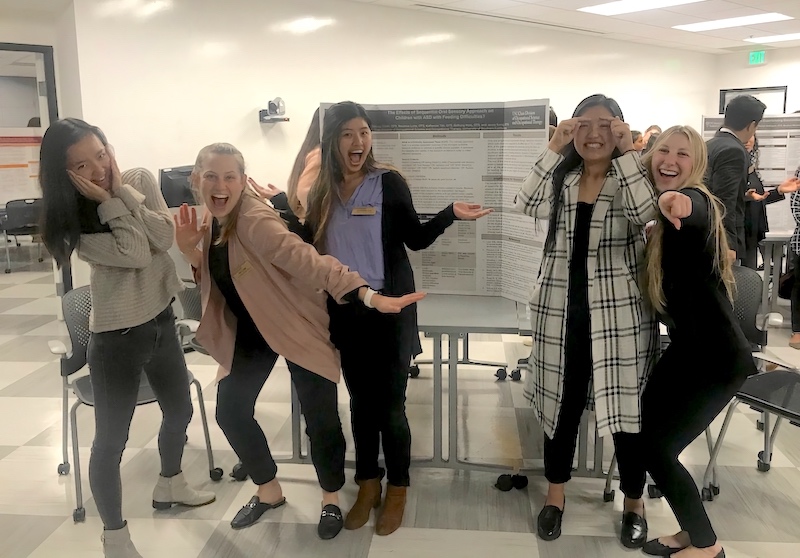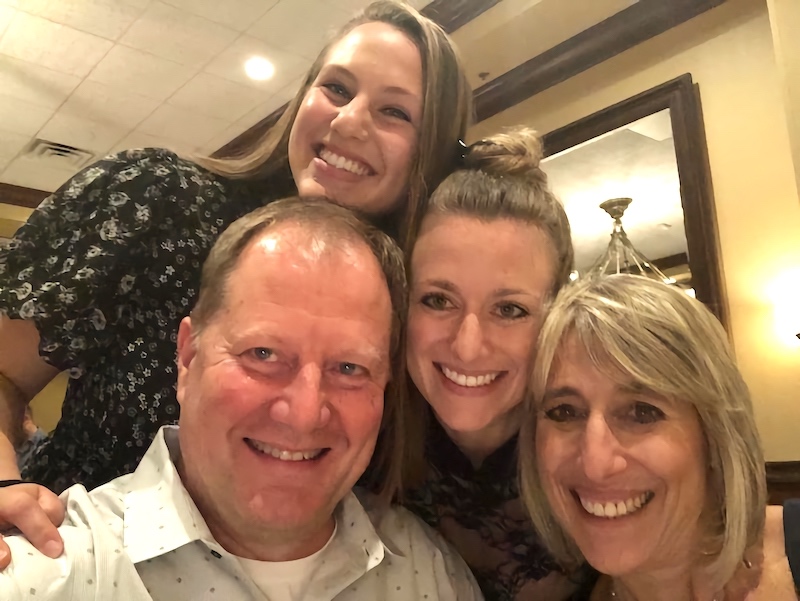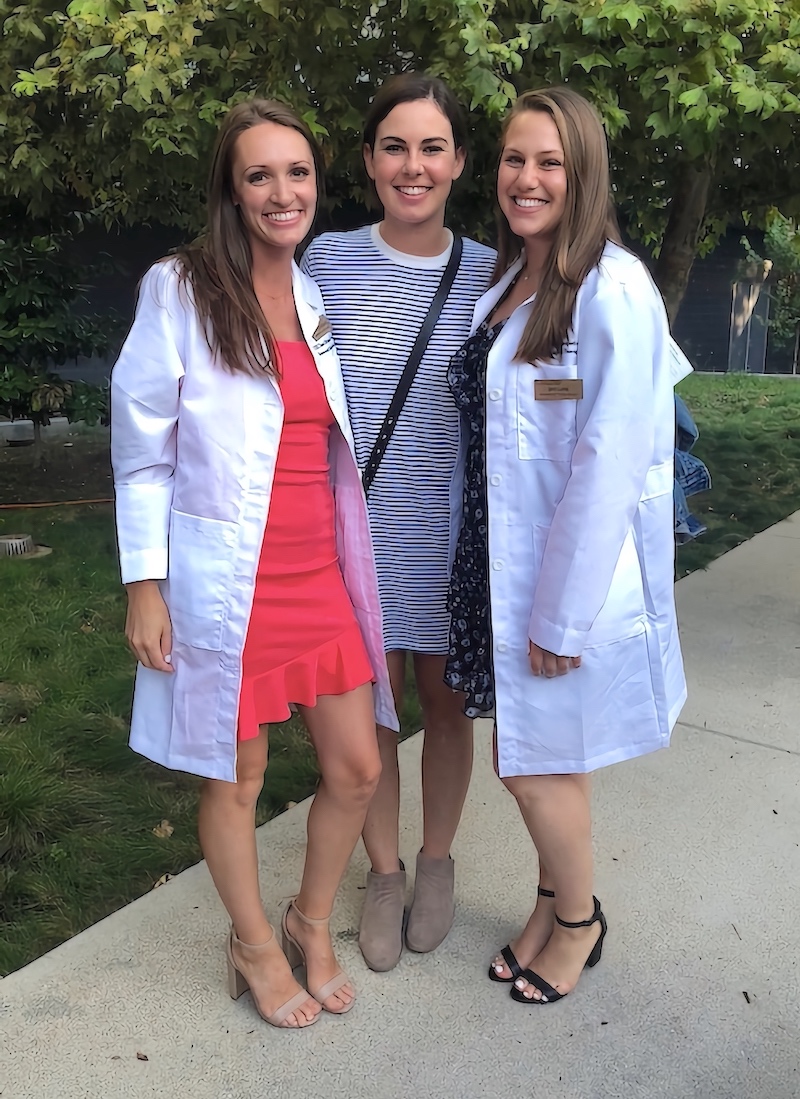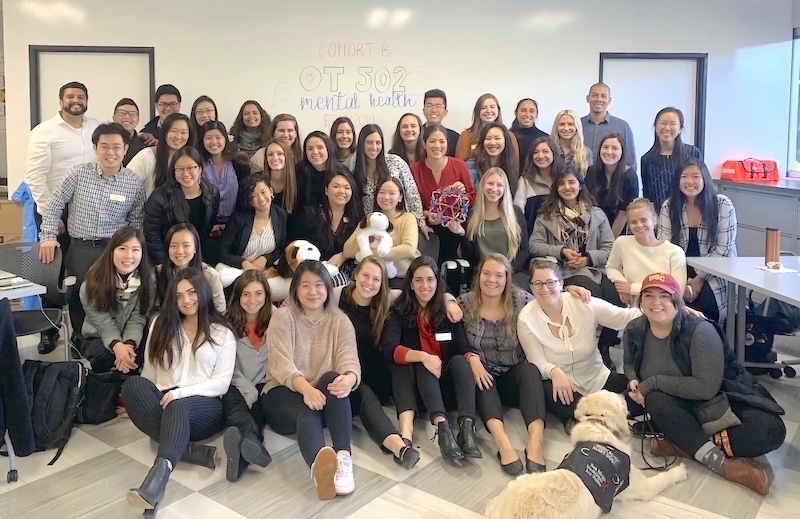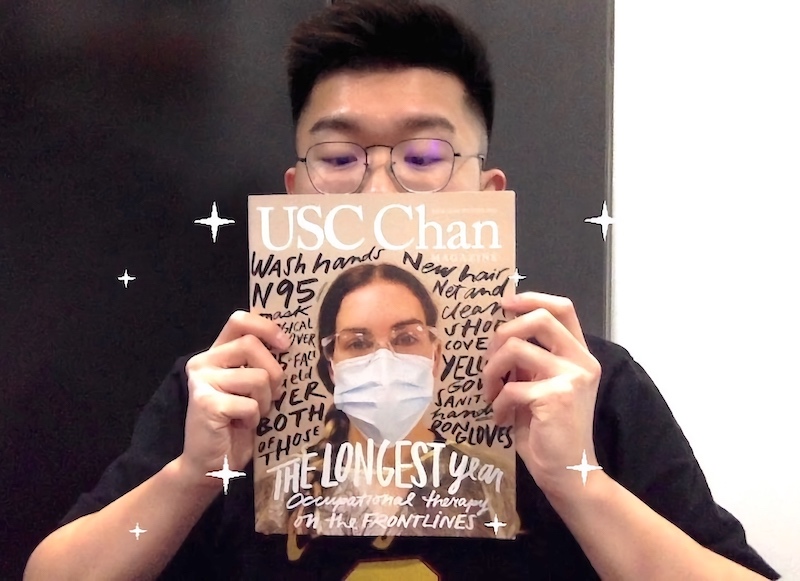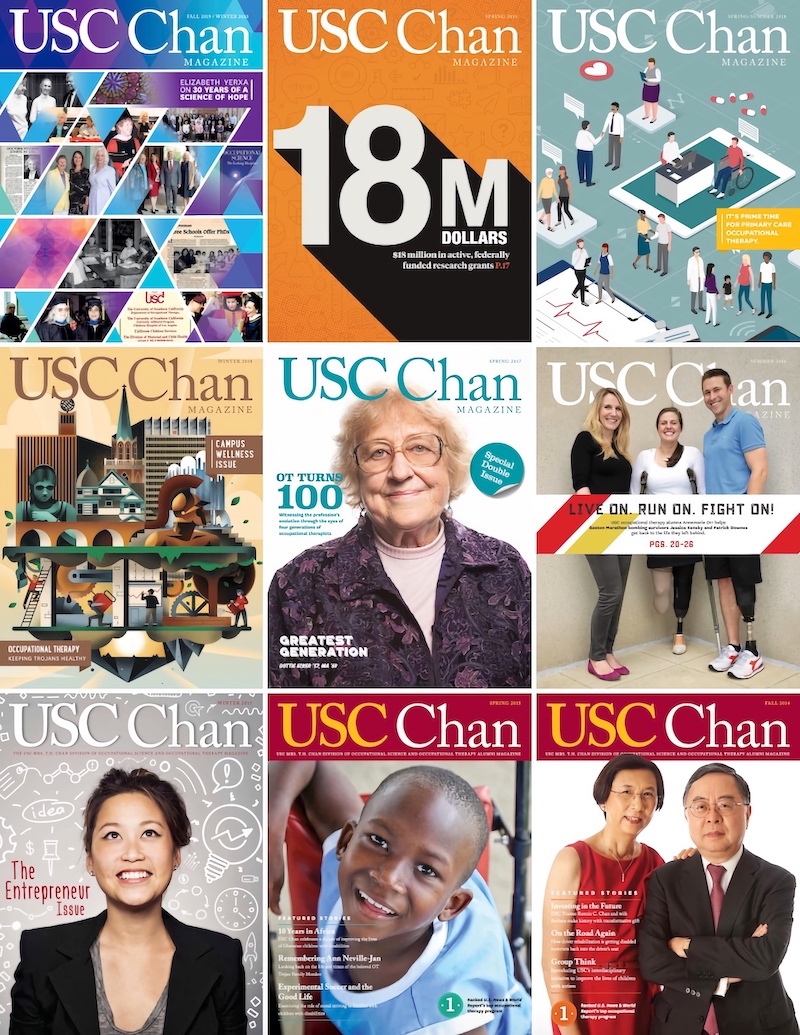Student Blog
Classes
Alumni Spotlight: Mineh Badmagharian ⟩
May 3, 2021, by Global Initiatives Team
Classes Externships International
Mineh Badmagharian, OTD, OTR/L
Alumni: Professional Master’s, OTD
By Brittany Inouye and Michelle Plevack
Entry-Level Professional Master’s students
In collaboration with James Lee
Alumni: Professional Master’s, OTD

Mineh describes this photo taken of her at Yerevan Children Railway as, “one of the best moments I had while in Armenia”
Global Initiatives members Brittany Inouye, Michelle Plevack, and James Lee had the pleasure of interviewing Mineh Badmagharian, a double Trojan who graduated from USC Chan’s Professional Master’s and Post-Professional Doctorate (OTD) programs. We are excited to showcase Mineh’s remarkable journey of exploration, perseverance, and love for OT!
Mineh’s Armenian heritage and her experience leaving her birth country of Iran at the age of 12 led her to complete her OTD residency in a community-based mental health setting at Intra Mental Health Center, in Yerevan, Armenia. This move was a difficult transition where she found herself living in a new country, being on her own for the first time, and struggling with language barriers as Russian is the second language spoken in Armenia. Her motivation to address the stigma of mental health in Armenia, her passion for the arts, and her desire to help people led her to slowly settle into her OTD site where she “fell in love” with this setting.
Unfortunately, when the COVID-19 pandemic hit, Mineh’s OTD residency site closed down. In a country with limited internet connectivity, her residency work transitioned primarily to phone communication with clients every day. During her year in Armenia, Mineh realized she was learning in many ways she had not previously anticipated. She found herself constantly checking her assumptions, realizing that there is no single way of thinking or perceiving, and learning how OT interventions cannot be generalized to all backgrounds. She shares that for many people in Armenia, “work” is not as meaningful of an occupation as socializing in the community — a prevalent theme in interdependent cultures. She nurtured new opportunities to connect with her clients by taking Armenian dance classes, which equipped her to engage with her clients in the meaningful social occupations that they valued.
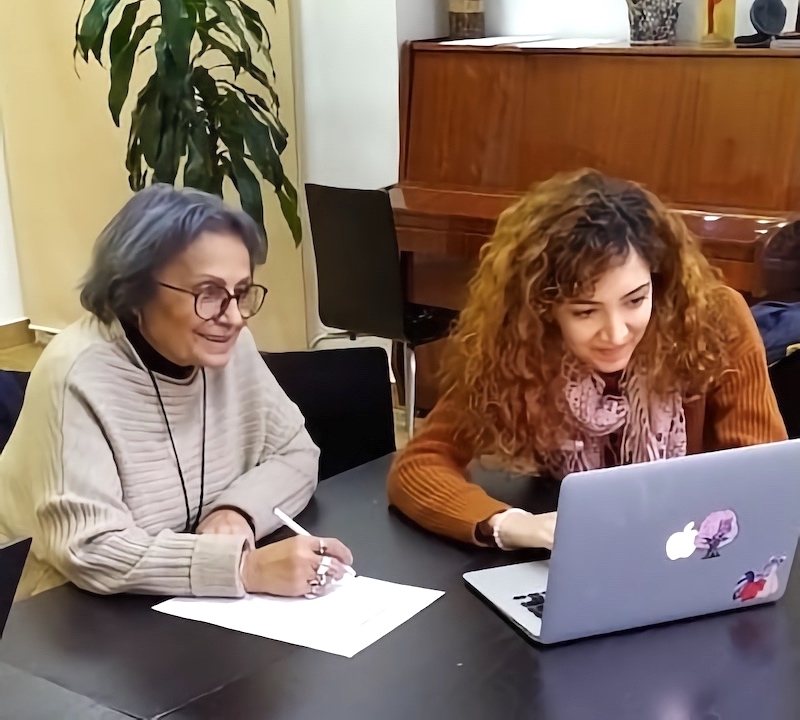
Mineh and her site supervisor Mrs. Anahid Iskandarova working on documentation at Intra Mental Health Center
Mineh describes a sense of community within the site’s office, and she shares that strategies from her Lifestyle Redesign class (OT 583) helped her cope with the pandemic, the trauma of the war in Armenia, and COVID-19 travel restrictions which prohibited her from leaving the country. After finishing her OTD in August 2020, she was hired as the Head of Research and Strategy at Expper Technologies. This robotics company is based in Armenia and Mineh completed her work online while residing in California. Mineh worked with a team to create Robin, an artificial intelligence-based robot companion to children undergoing medical treatments. She helped develop Robin’s personality, the way Robin interacts with kids, and game content that decreases anxiety and fear associated with medical visits. The team spent 1000+ hours acting as Robin, transcribing quotes, and gathering data for Robin’s algorithm.
Although her current job title does not specify her as an occupational therapist, Mineh believes she brings aspects of OT into her role and has future hopes to work in community mental health settings in Armenia. Mineh warmly encourages anyone interested in doing OT international work to “Go do it! Be open to learning!”
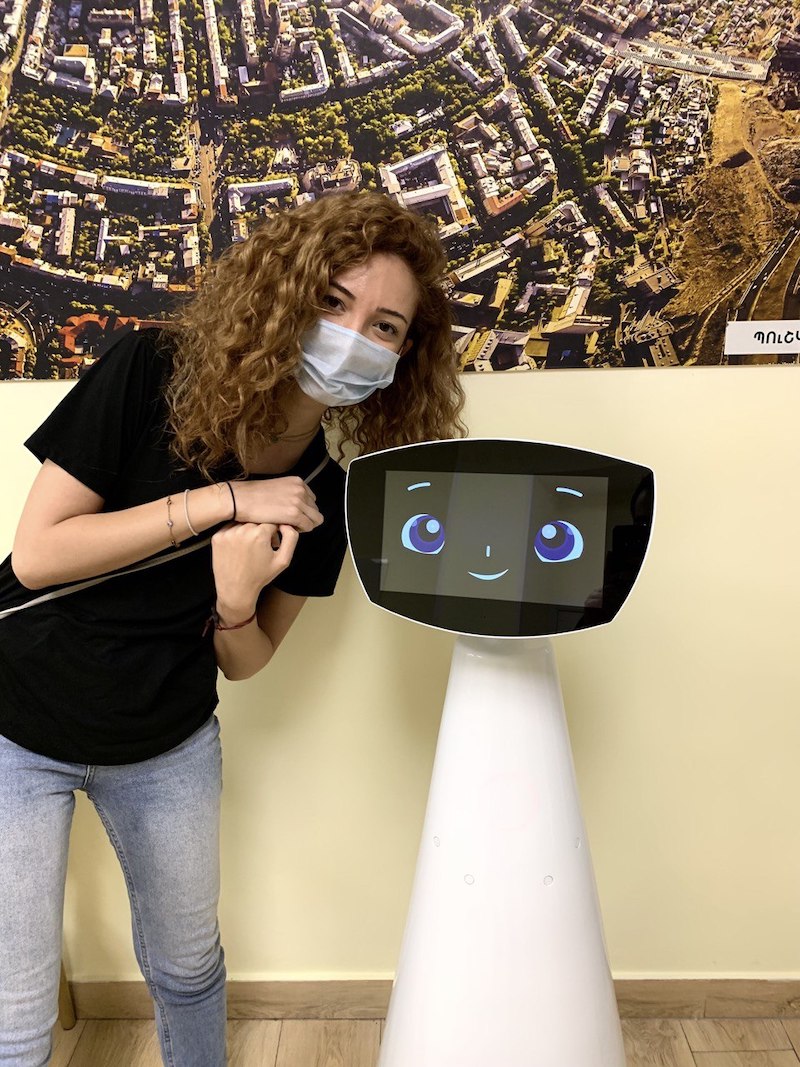
Mineh and Robin!
⋯
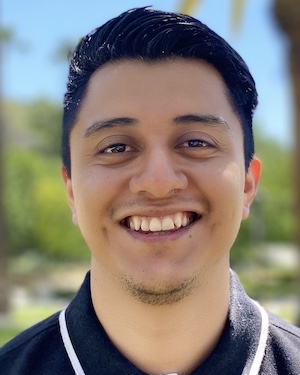
A Week in the Life: OTD Residency Edition ⟩
April 30, 2021, by Daniel
Classes Fieldwork Life Hacks Videos
As I prepare to go into the last semester of my OTD Residency, I wanted to share with you all what a typical week looks like for me. Completing my residency at the LAC+USC Primary Care Adult West Clinic has been one of the most rewarding experiences I’ve had as a student, and now licensed occupational therapist.
I hope you find this vlog helpful and enjoy it!!!
If you have any questions, feel free to reach out to me at .(JavaScript must be enabled to view this email address) or .(JavaScript must be enabled to view this email address).
⋯
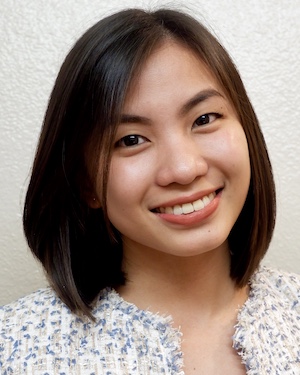
A Day in the Life (Hybrid edition) ⟩
April 28, 2021, by Yna
Classes International Living in LA Videos
“What’s a typical day of a master’s student look like?” “How are your classes being held?”— these two must be some of the top questions that I get asked by students. That is why I decided to make a vlog called A Day in the Life—Hybrid edition, because we are currently employing a combination of in-person and virtual formats for some of our courses. Safety measures are observed to ensure safe delivery of in-person instruction, such as weekly COVID-19 tests, completing the Trojan Check before coming to campus, physically distanced classroom seating arrangement (one student per table), and wearing of face shields whenever we needed to get closer than 6 feet with each other. In this video, you will see me go to campus for our in-person class for OT500: Clinical Problems in OT, Special Topics and Emerging Practices, wherein we learned from Jane Baumgarten OTR/L proper techniques when performing physical transfers and mobility on a variety of client populations. I also included steps on how to do the Trojan Check and how to make a reservation to use the library. Watch the video here:
⋯
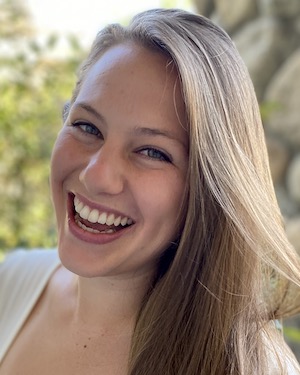
Finding your A-teams ⟩
April 23, 2021, by Savi
Classes Getting Involved Life Hacks
When you get to graduate school, you will quickly realize that you cannot succeed alone. You will gravitate towards and lean on all types of people throughout your two years and you will form long-lasting friendships. As graduation soon approaches, I have had to face the fact that I will no longer be blessed with the opportunity to work with all these wonderful people on a daily basis. I have formed a variety of different teams depending on the class, club, job, or activity I’m in and I wanted to thank all the people who have helped me succeed as a student, friend, classmate, and practitioner. Below I have included some pictures of my various teams. This is most definitely NOT a comprehensive list, because there are so many more wonderful people who have helped me along the way that are not pictured below. To those who are not pictured . . . you know who you are . . . I appreciate you all!
- To those who got me through my first summer semester: I truly do not know how I would have made it through without ya’ll. Whether you were a friendly face to me on the first day (shout out to Lamoni for being the kindest to me when we were seated next to each other on the first day of class), a late-night study partner in Currie Hall, or a lab partner who tolerated me asking too many questions and talking everything out loud, you made the transition into graduate school a little less stressful.
- To the MANY group project teams: Thank you for helping me expand my creativity. Time and time again I found myself researching topics I would have never come up with on my own. Whether that was focusing on the effectiveness of the sequential oral sensory approach with children who are diagnosed with Autism Spectrum Disorder in OT 518 Quantitative Reasoning, or developing a wellness program for undergraduate college students in OT 537 Occupation for Community, I got the opportunity to surround myself by people with varying interests and skillsets which allowed me to grow as a practitioner.
- My cohort: Shoutout to cohort B for being the best cohort I could EVER ask for. Your knowledge about and passion for OT inspired me daily and I couldn’t have asked for a better group of people to hang out with all day every day.
- My roommates: These people have seen it all! Shoutout to these gals for dealing with me at my best and my worst, for always being a shoulder to lean on, and for listening to all my crazy rants. I appreciate you both for making the little parts of life fun, for being my “OT practice patients” during this pandemic, and for supporting me always. I couldn’t have done these two years without you!
- To my ambassador team: You all are my rocks. Thank you for having faith in my capabilities, for always stepping up to the plate, and for helping me out when you can see that I am stressed. You all always know the right thing to do and say, and it has been an honor working with and learning from all of you.
- To the adventure buddies: Thank you for taking my mind off the craziness that is graduate school and helping me re-focus on my energy on meaningful occupations. You are the silent heroes in my life. Thank you for supporting me both inside and outside of the classroom. You are able to read me like a book by this point and understand when I need to take a break and just enjoy the outdoors. You are the ones to text me a funny joke when you know I am having a hard workday or to organize an event when it is time to celebrate even the smallest success. Thank you for pushing me outside of my comfort zone, surrounding me with love and celebration, and for being there through the tough times.
- To my family . . . my lifelong team: There are not enough thank you’s to show how grateful I am for you three. To my sister, life mentor, and OT guide, I do not know where I would be without your wisdom and guidance. You always know the right thing to say and do and I will forever be thankful for you. Mom and Dad – you are my biggest support system. Without out you none of this success would have been possible. You are my biggest cheerleaders and I know that you two are what motivate me to push harder every day.
My friends and I winning a fun and friendly competition in preparation for a quantitative reasoning exam.
My quantitative reasoning team posing in front of our poster on the effectiveness of the sequential oral sensory approach.
⋯
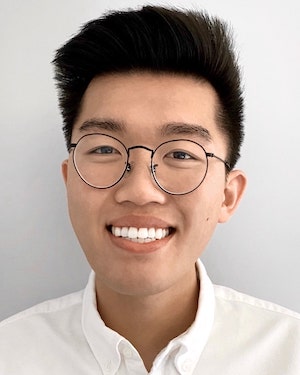
Hot Off The Press!!! ⟩
April 19, 2021, by Calvin
Classes Externships Getting Involved What are OS/OT?
Extra! Extra! Read all about it! Here at USC Chan, we actually have our very own magazine! The USC Chan Magazine is the division’s premier publication and releases twice yearly. The Fall 2020/Winter 2021 issue was recently published, and I had the pleasure of contributing to it as a writer and interviewer. Major thank you to the man behind the magazine, Dr. Mike McNulty, for his guidance, support, creativity and flexibility throughout the entire process, as well as for being such a driving force in making these magazines come to life! So much work gets put into crafting each issue and his collaborative efforts to piece everything together with all contributors is 👏!
Check out the most recent USC Chan Magazine: Fall 2020/Winter 2021 issue!
Here are links to some articles included in the latest issue:
- The Longest Year, by Dr. Carnie Lewis
Reflections on the frontline pandemic experience from a hospital-based occupational therapist. - Lessons Learned, by Calvin Lee (me!)
A new course helps make sense of the pandemic by studying it. - Pain and Pleasure, by Jamie Wetherbe
Face to face and through the screen, a USC occupational therapist helps a client better manage her everyday pain to improve quality of life. - To Do Unto Others, by Dominique Como
Narrowing oral health disparities gaps of Black/African American children with and without disabilities.
I’m also very grateful to have been able to tailor this experience towards my OT 540: Leadership Capstone Externship Project. The externship is an experience where students are provided with the opportunity to build leadership skills and explore an area that is of interest to them. I’ve always been fascinated with the USC Chan Magazine and I was very interested in learning about how an OT lens can contribute to the realm of copywriting and advertisement. I highly recommend giving the magazines a read 😊! Reflecting back, it’s amazing to see how much we’ve accomplished and overcome together as a USC Chan community.
Explore previous issues of the USC Chan Magazine!
⋯






